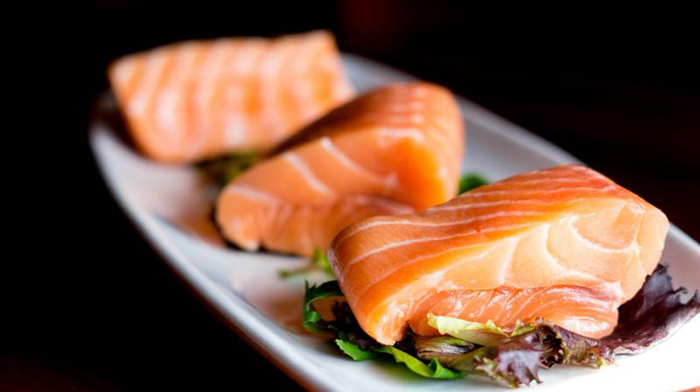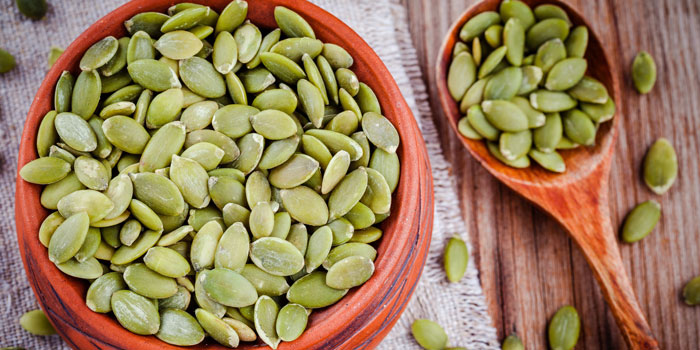You might be wondering about how the food you eat is related to the functioning of your brain. Even though it is a known fact that what you eat affects your body and the physical appearance as well. As per research studies conducted by scientists and nutritionists, what you eat takes a toll on your brains. Therefore, eating well is extremely important for not only physical health but mental health as well. However, it is worth thinking that which foods are particularly important to keep your grey matter healthy and happy.
Whether it is about optimizing your nutrition during exam days or just simply staying sharp in the next work meeting, paying close attention to diet can be of great help. Even though there is no food that can be referred as “brain food” and protects against age-related disorders like dementia or Alzheimer’s disease, and similar other medical conditions that can affect the brain. Being careful and paying attention to your eating habits offers you the best chance to get all the nutrients required for cognitive health.
There are numerous food components that help to improve brain health for one reason or the other. These food components include:
- Lean Protein – Lean protein is a crucial brain food to enhance memory because it supports brain neurotransmitters. However, some of the damaging components and fattier content provided by protein is not included in the list.
- Complex Carbohydrates – complex Carbohydrates help to provide the brain with a steady source of energy. This is beneficial because our brain doesn’t have the potential to store energy like our muscles.
- Antioxidants – Many food items contain high content of antioxidants. These antioxidants help to reduce the risk of brain cell damage.
- Omega-3 Fatty Acids – These fatty acids, particularly DHA, help to reduce inflammation as well as the risk of cancer, heart attack, and stroke.
- Vitamin D and B Vitamins – Vitamin D and all essential B Vitamins help to combat stress and depression thus improving mental health.
- Magnesium – Magnesium is an important micronutrient that is required for over 300 metabolic functions, not excluding concentration, focus, and recuperation from stress.
Eating a healthy and balanced diet that includes the following super foods may help to boost your memory as well as improve concentration while making your memory sharper.
- Fatty Fish

When we talk about brain foods, fatty fish tops the list. Fatty fish is an excellent source of omega-3s, a major building block of the brain. Omega-3s play a crucial role in boosting memory power and improving mood, while simultaneously protecting the brain against decline (1).
Some good examples of fatty fish are trout, salmon, and sardines, all of these being amazing sources of omega-3 fatty acids. Approximately 60% of our brain is made up of fat of which half constitutes omega-3 kind. The brain uses omega-3 fatty acids to build brain and nerve cells. These fats are crucial for learning power and memory.
In addition, omega-3s also provide other benefits for the brain. Initially, they slow down the age-related mental decline and help combat Alzheimer’s disease. Secondly, not getting sufficient amount of omega-3s may lead to learning impairments and depression as well.
Adding further, eating fish provides general health benefits as well. As per a study conducted by nutritionists, people who included boiled or baked fish in their diet had more gray matter in their brains. Gray matter refers to that area of the brain that contains most of the nerve cells to control decision making, emotions, and memory (2).
Overall, fatty fish is an amazing choice of food to boost the memory.
- Blueberries

Blueberries contain antioxidants that help delay the process of brain aging and improve memory as well. Additionally, blueberries also offer numerous general health benefits as well, including some that are especially for brain health. Blueberries provide anthocyanins, a group of plant compounds that contain anti-inflammatory and antioxidant effects. Antioxidants work to fight off oxidative stress and inflammation. Both these conditions may cause premature aging of the brain and other neurodegenerative diseases (3).
Some of the antioxidants contained by blueberries have been found to accumulate inside the brain and help to improve communication between the brain cells. Surprisingly, blueberries not only help to improve memory, but may even delay short-term memory loss.
- Coffee

Coffee helps to boost alertness and improves mood as well. It also provides protection against Alzheimer’s because of the caffeine and antioxidants contained by it.
The caffeine in coffee provides numerous positive effects on the brain, like:
- Better Mood
Caffeine also boosts the “feel-good” neurotransmitters, like serotonin.
- Increased Alertness
Caffeine keeps the brain alert by restoring adenosine, a chemical messenger that makes you feel lethargic and sleepy.
- Better and Sharp Concentration
As per a study conducted, it was found that people who drank a large cup of coffee in the morning or smaller amounts through the day were more effective at tasks that demanded concentration (4).
In addition, drinking coffee over a long period, is also related to a lesser risk of neurological diseases, like Alzheimer’s and Parkinson’s disease. This is because of the high content of antioxidants contained by coffee.
- Turmeric

Turmeric is recently gaining high rage among users. Turmeric and its active compound Curcumin provide strong antioxidant and anti-inflammatory benefits, which help the brain. It has also been proved through research studies that turmeric helps to reduce the symptoms of Alzheimer’s disease and depression.
This deep yellow spice is one of the key ingredients in curry powder and provides numerous benefits for brain health. The active ingredient Curcumin has proved to cross the blood-brain barrier. Putting it simple, it can enter the brain directly and benefit the cells present there (5).
This potent antioxidant and anti-inflammatory compound has been associated with providing the following brain benefits:
- Helps in Growth of New Brain Cells
Curcumin boosts brain-derived neurotrophic factor, a kind of growth hormone that helps in the growth of new brain cells. It also delays the process of age-related mental decline.
- Eases Depression
Turmeric boosts dopamine and serotonin, which are both known to improve mood. As per a study, it has been proved that Curcumin helps to improve symptoms of depression as much as an antidepressant would do in a time span of over six weeks.
- Improves Memory
Curcumin helps to improve memory in people suffering from Alzheimer’s disease. In addition, it also helps to clear the amyloid plaques, the key symptom of this disease (6).
To get maximum benefits of Curcumin, add turmeric to your curry powders and dishes to make them golden. You can also prepare turmeric tea as an alternative.
- Pumpkin Seeds

Pumpkin seeds are packed with various micronutrients, like iron, copper, magnesium, and zinc to support proper brain functioning. Pumpkin seeds also contain powerful antioxidants that help to protect the body and brain from free radical damage. Each of these nutrients provides unique benefits for brain health (7).
- Iron – Iron deficiency may lead to brain fog and impaired brain functioning.
- Copper – The brain uses copper to help control nerve signals. When copper levels are down, there’s a higher risk of neurodegenerative disorders, including Alzheimer’s.
- Magnesium – Magnesium is crucial for memory and learning. Low levels of magnesium can cause various neurological diseases, like depression, migraines, and epilepsy.
- Zinc – Zinc is important for nerve signaling. Zinc deficiency has been associated with various neurological conditions, like Parkinson’s disease, depression, and Alzheimer’s disease.
The related research focuses mainly on these micronutrients instead of pumpkin seeds for they are high in these micronutrients. Therefore, by including pumpkin seeds in your diet, you ought to reap their benefits for brain health.
- Broccoli

Broccoli is loaded with powerful plant compounds, including antioxidants and anti-inflammatory effects, along with vitamin K. This amazing plant food provides more than 100% of Recommended Daily Intake (RDI) in a 1-cup serving, i.e. approximately 97 grams. The fat soluble vitamin K is essential to form sphingolipids, a kind of fat that is packed densely into brain cells. Some studies in older adults have proved higher intake of vitamin K to be related with better memory.
In addition to being loaded with vitamin K, broccoli also contains various compounds that provide antioxidant and anti-inflammatory effects that provide protection to the brain against damage (8).
So, get set and go! Just add these super foods to your diet. Include these in the list of your favorite foods and see the difference. Just rock on!


